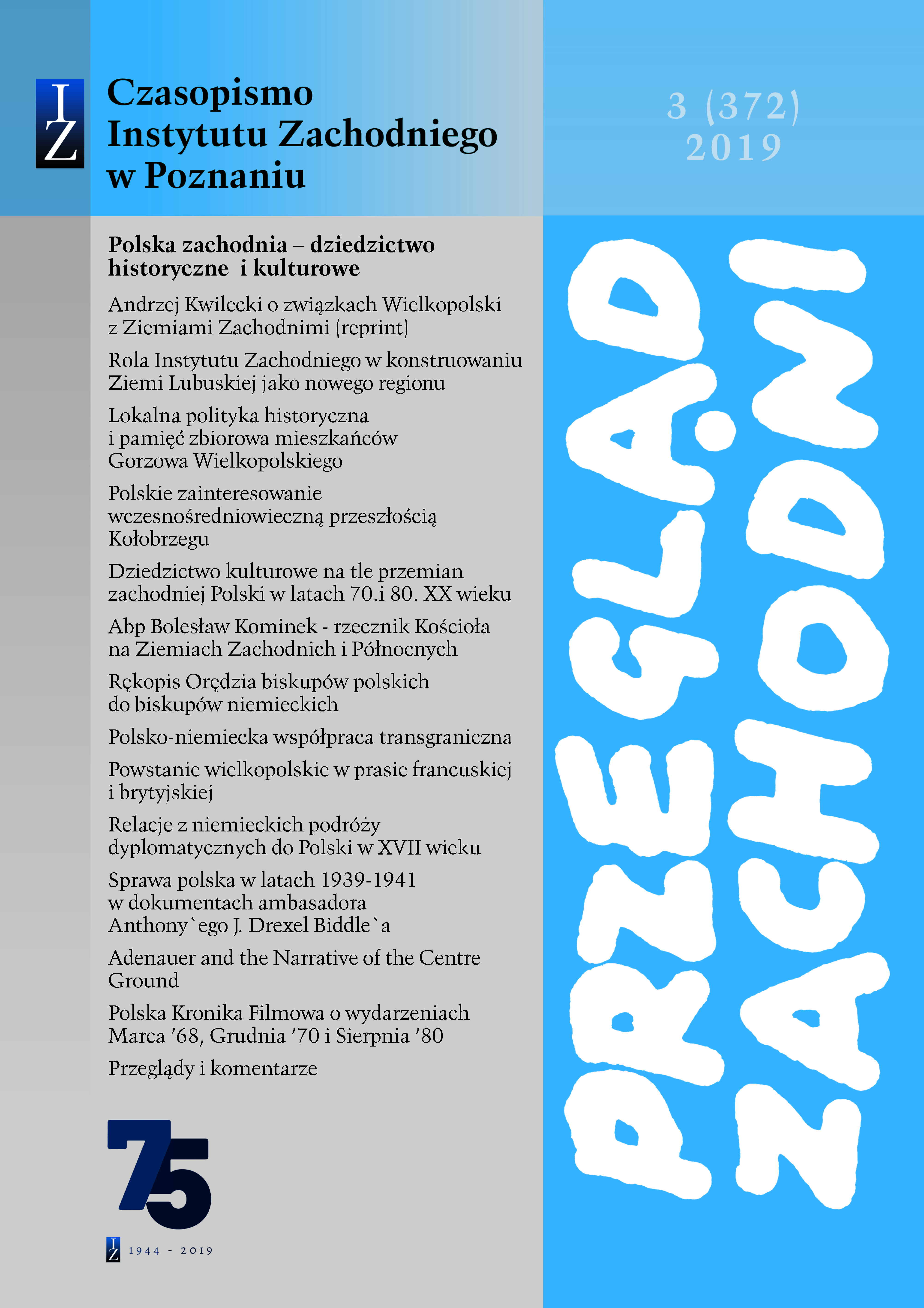Rola Instytutu Zachodniego w konstruowaniu Ziemi Lubuskiej jako nowego regionu 1945-1948
The role of the Institute for Western Affairs in the construction of the Ziemia Lubuska ( Lubusz Land) as a new region 1945-1948
Author(s): Małgorzata DąbrowskaSubject(s): Historical Geography, Local History / Microhistory
Published by: Instytut Zachodni im. Zygmunta Wojciechowskiego
Keywords: Polish Western Territories; region building;Institute for Western Affairs;Lubusz Land
Summary/Abstract: The article presents the role of the Institute for Western Affairs (Instytut Zachodni) in generating and publicizing the concept of the Lubusz Land after World War II as a new region of Poland. The concept originated in 1945-1948 and underpinned the creation of the new region, a task to which a number of scholars associated with the Institute devoted the first post-war years. The paper aims to define the stages of the construction of the concept of the Lubusz Land, as well as later attempts to deconstruct this idea. It is worth underscoring that immediately after World War II, the Institute for Western Affairs was responsible for furnishing the rationale of the Lubusz Land as a region of Poland. The methodology of the present study relies predominantly on the genetic method and analysis of source materials from the Archives of the Institute for Western Affairs and the materials of M. Sczaniecki in the Archives of the Polish Academy of Sciences. Archival sources supplement the published materials of scholars associated with or representing the Institute, and in the latter case the philological method was employed. From a study of the documents it follows that taking advantage of favourable circumstances in 1945, the Institute for Western Affairs created a new region - Lubusz Land, which was to help preserve the borderland character of Greater Poland. The cited sources reveal that the Institute’s main task was to demonstrate the distinctness of the Lubusz Land from Pomerania and Silesia, and at the same time its close and inextricable connection to Poznań, in a sense also its intellectual dependence on the capital of Greater Poland. Although the concept was a top-down one, the administrative reform of 1950, seen as unfavourable from Poznań’s perspective, led to a subsequent retreat from the original idea. In the activities of the Institute for Western Affairs after 1950 there is a marked tendency to negate previous theses and disclaim the concept of the Lubusz Land.
Journal: Przegląd Zachodni
- Issue Year: 372/2019
- Issue No: 03
- Page Range: 19-36
- Page Count: 18
- Language: English, Polish

